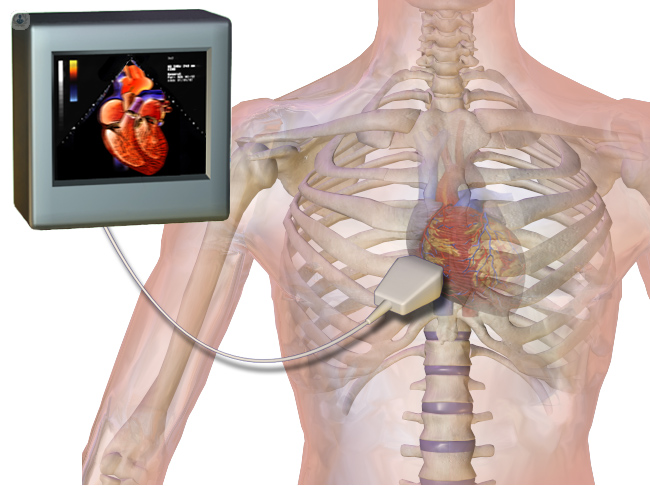
Echocardiography
Echocardiography in nagpur, also known as cardiac ultrasound or echo, is a non-invasive medical imaging test that uses high-frequency sound waves to produce detailed images of the heart and its blood vessels.
How Echocardiography Works
When an echocardiogram is done, a skilled technician applies a transducer to the patient’s chest. The transducer sends high-frequency sound waves that reflect off the structures of the heart and form echoes. The echoes are processed by a computer to create images of the chambers, valves, and vessels of the heart. This allows physicians to detect heart valve abnormalities, congenital heart disease, and cardiomyopathies.
Types of Echocardiography
- Transthoracic Echocardiography (TTE): The most common type, TTE captures images from outside the chest. It provides a comprehensive view of the heart’s anatomy and function.
- Transesophageal Echocardiography (TEE): This method involves inserting a probe into the esophagus to obtain clearer images, especially for patients with challenging chest anatomy.
- Stress Echocardiography: Doctors use this technique to evaluate the heart’s performance under stress, either through exercise or medication.
- Doppler Echocardiography: This method measures blood flow through the heart and vessels, helping detect blockages or leaks in valves.
Benefits of Echocardiography
Echocardiography offers numerous advantages. It provides accurate, real-time images without exposing patients to radiation. The procedure is painless, non-invasive, and typically takes less than an hour to complete. Doctors rely on echocardiography to diagnose conditions like heart failure, pericardial diseases, and congenital heart defects. Additionally, it helps monitor the progression of heart disease and assess the effectiveness of surgical interventions.
Why Choose Echocardiography?
Echocardiography stands out as a reliable diagnostic tool for heart health. It delivers precise results, enabling early detection of heart conditions and timely intervention. Whether you’re experiencing symptoms like chest pain, shortness of breath, or irregular heartbeats, echocardiography provides critical insights into your heart’s health.Contact Us
Conclusion
Echocardiography remains a cornerstone in modern cardiology. Its ability to deliver detailed, real-time images of the heart makes it an indispensable tool for diagnosing and managing heart conditions. If you suspect any heart-related issues, consult your healthcare provider to determine if echocardiography is right for you. Early diagnosis can save lives, and echocardiography ensures you receive the care you need.Schedule your Consultation with Dr. Ritesh Nawkhare
